It wasn’t anyone’s birthday. There was no special occasion, no invites sent out, no balloons or streamers. It was just one of those spontaneous “tara, salu-salo tayo” (Come on, let’s eat together!) kind of ideas!
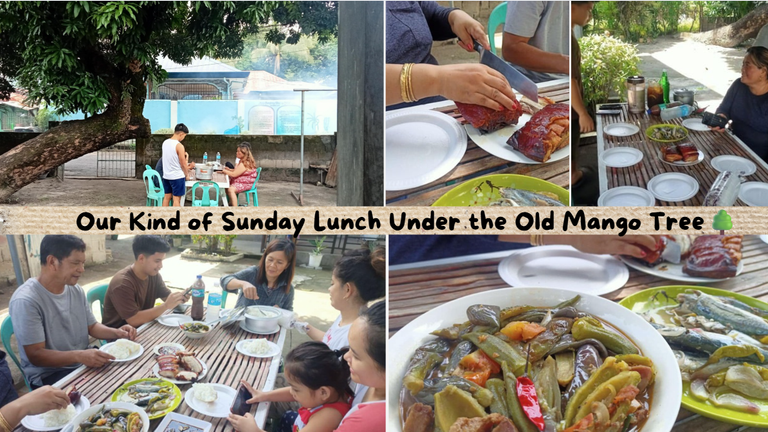
We laid everything out under the old mango tree, which is the same tree that’s been part of our lives for as long as I can remember. There are still little carvings on its trunk from when we were kids—initials, doodles, even a heart or two we scratched in using rocks.
It’s funny how even those little marks are still there, weathered but hanging on, like our memories. I remember all the times unripe mangoes would fall too early, and one of the kids would cry because they were saving it for later.
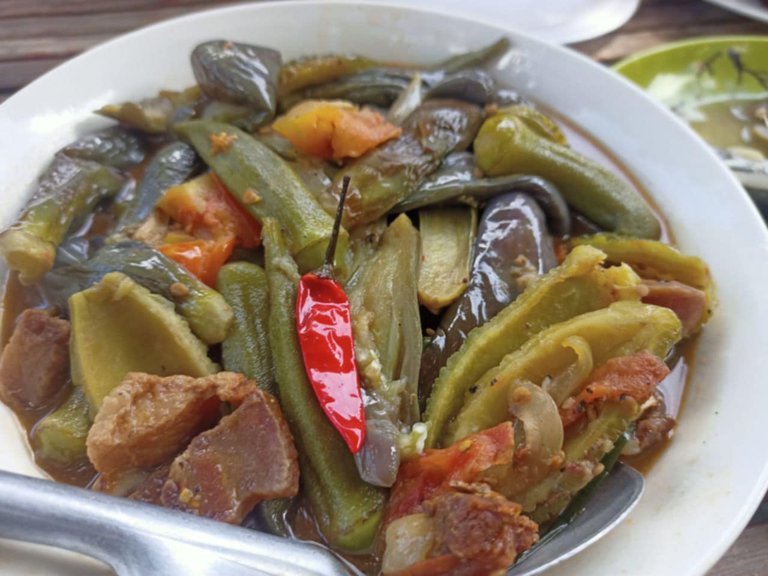
Mama brought out her pakbet, and honestly, it stole the spotlight even before anyone had a taste. The smell alone—sautéed garlic, onions, and bagoong—was enough to make our stomachs growl. It was that familiar, mouthwatering aroma that always feels like home. The mix of vegetables—eggplant, bitter melon, squash, string beans, and okra—were tossed together with pork belly and simmered in one big pan.

She always says, “Just throw everything in together—no need to overcomplicate it.”
And like magic, after just 10 to 15 minutes, it was done. The colors alone made it look so appetizing, you’d think it came from a cookbook.
My Aunt and her family arrived a little later, carrying a tray of freshly fried pork liempo. The aroma of the crispy pork skin reached us even before he sat down. The cuts were big—clearly made to tempt everyone at the table.

No dipping sauce was needed. It was absolutely delicious, I swear. It’s one of those dishes that makes the whole table go quiet because everyone’s too busy chewing and savoring every bite.
And then came my nephew, our little bundle of energy, still glued to his phone playing Plants vs. Zombies.
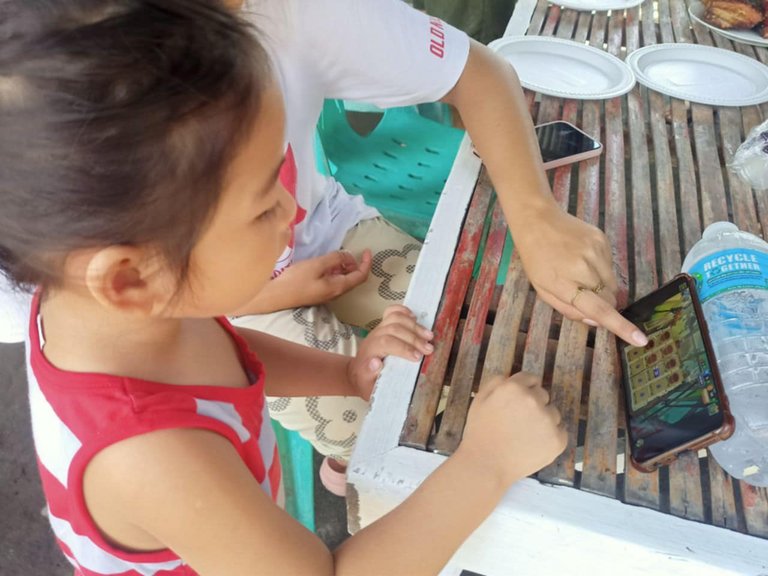
But the moment he smelled the food? That was it—he hit "Pause" and sat right down with us. “Grandma, give me the squash!” he shouted, already reaching for the pakbet.
We all gathered around the table, eating kamayan style—with our hands, no utensils, no fuss. No one was trying to be fancy, and no cellphones were in sight.
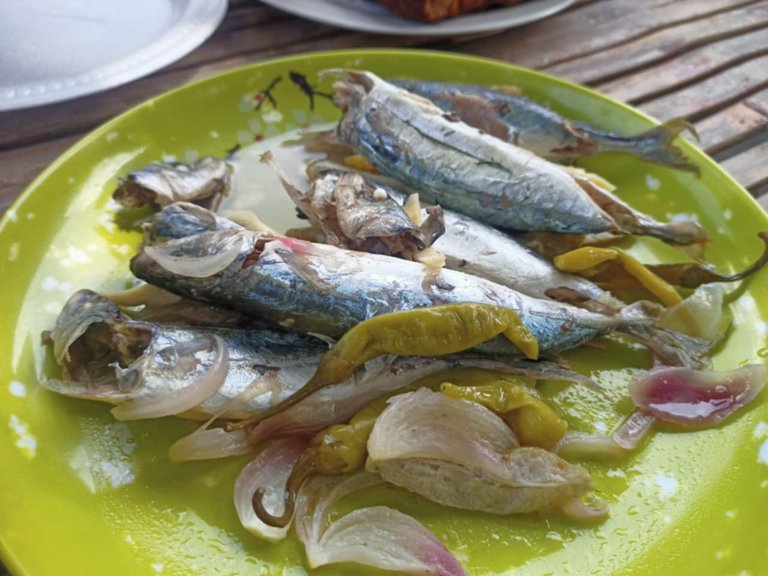
Just full plates and even fuller hearts. And as if the moment couldn’t get any better, my aunt brought out her pinangat na isda with kamias—that familiar, comforting sourness that perfectly balanced the richness of all the other dishes.
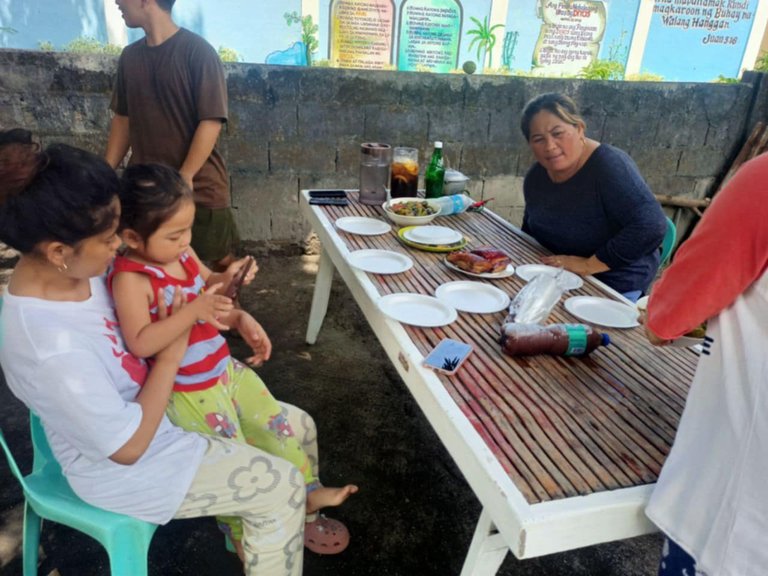
We laughed. We told stories we’ve told a hundred times before, but still laugh at like it's the first time. Someone spilled rice, someone dropped a liempo piece on the grass (and still ate it—five-second rule, haha). It was messy, imperfect, but so real.
In the middle of all that, I just stopped and looked around. These are my people.

This is home. No five-star restaurant could beat the feeling of sitting on the ground, sharing food made with love, while being surrounded by the stories and faces that shaped you.
This Sunday lunch under the mango tree didn’t change the world. But it reminded me of what really matters. And that’s more than enough.
